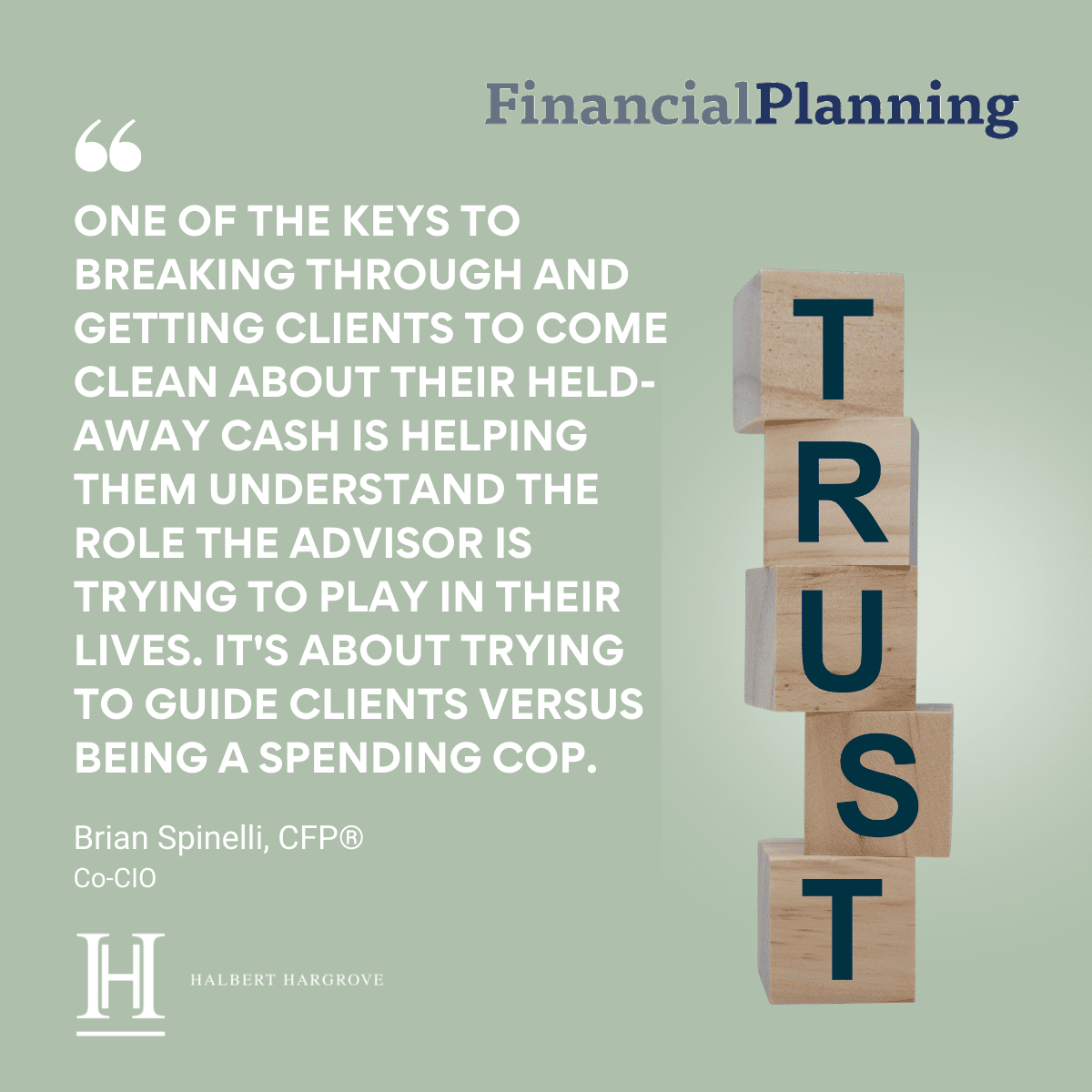By Justin L. Mack, FinancialPlanning featuring Brian Spinelli, CFP®, AIF®, Co-Chief Investment Officer
Financial advisors are tasked with helping those that come to them for guidance take charge of every aspect of their financial lives.
But if you don’t know your clients’ complete cash stories, can you truly deliver the most impactful advice?
That was one of many cash topics tackled Tuesday during an event held by Flourish, the RIA technology platform owned by MassMutual that offers cash and crypto management tools for advisors.
Called “Cash Awakening: Exploring the CIO Perspective on Cash,” the hourlong discussion moderated by Financial Planning Wealthtech Reporter Justin L. Mack called upon Brian M. Spinelli, co-chief investment officer at Halbert Hargove, and Kristi de Grys, chief operating, investment and compliance officer at Merriman Wealth Management, to break down how clients view cash, common use cases and how their firms are using modern cash management tools as part of a holistic advisory offering.
Flourish officials said the discussion was inspired by the fact that one of the most frequent questions they get from advisors across the more than 700 RIAs they partner with is how Flourish Cash works along with money market funds, Treasurys and other cash equivalents in the advisor toolkit.
In addition, the amount of cash that sits outside a client’s portfolio and outside of an advisor’s purview continues to exceed expectations.
According to a 2022 Capgemini World Wealth report, people with at least $1 million in investable assets keep 20% of their net worth in cash. Meanwhile, a recent Flourish analysis found that clients with a self-reported net worth of $1 million to $2 million hold an average of $183,672 in Flourish Cash accounts, and clients with a self-reported net worth of $5 million to $10 million hold an average of $363,831 in cash.
Because advisors can’t easily see, manage or bill on that cash, it often goes ignored. Those aware of what they’re missing can flip that into a business opportunity. But first, they need to understand why clients are keeping all that cash held away in the first place.
For de Grys, the reasons are both practical and psychological.
“One is liquidity. They need to spend it in the next three to 12 months. They have tax payments. They have spending needs, but they don’t know what they’re going to spend. And because we don’t know what portfolio returns are going to be over the short term, it totally makes sense to a money in cash for most people,” she said. “The second is that it’s secure. And that’s really less of an investment question and more of a psychological question.
“We think about that as a feeling of safety, a feeling of being in control, a fear of the unknown. And for those clients, they want cash.”
Spinelli said one of the keys to breaking through and getting clients to come clean about their held-away cash is helping them understand the role the advisor is trying to play in their lives.
“It’s about trying to guide clients versus being a spending cop. As far as cash, two years ago, it wasn’t a conversation. Everybody was just complaining (that) they got nothing. But at the same time, their mortgage rates were also artificially low. But it has all changed,” he said. “The environment is a lot different now. So as clients think about inflation, they think about just what their assets are doing for them. They need to maximize their cash returns as best as possible. And who knows if they’re going to stick around for the long term, but at least in the current environment, it needs to be focused on.”
He added that for many wealth management clients, the bucketing mentality comes into play.
“They want to see it in a separate account. They don’t want to see it piled into a managed account where they’re like, ‘oh, that’s (Halbert Hargrove’s) money, so I don’t want to touch it. Or I don’t have to call them and ask them to liquidate,” he said. “They really want a little bit more privacy to make the transfers and do it themselves and not have to feel like they’re going to mom and dad for the allowance.
“Maybe it’s a potential home purchase. Maybe they’re saving for something long term and they just want that standalone account. These are the conversations that are coming up in client meetings in this environment.”


